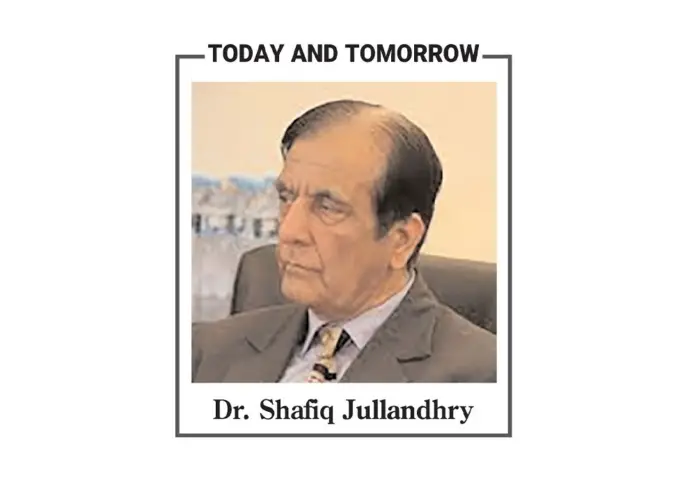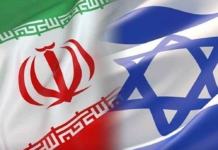Musarrat Jamshed Cheema, a businesswoman and a social worker who specializes in health, education, and women empowerment, was the guest speaker this time at the weekly meeting of the Eilaf Club in Lahore. She is also a Punjab Assembly member and chairperson of the Standing Committee on Home, Adviser of Information Department, and Member Syndicate of the Punjab University. The meeting was attended by Minute Mirror Editor-In-Chief Ali Sajjad, former Pakistan Times Editor-In-Chief Nasim Ahmed, former counsel of Pakistan Javed Nawaz, Dr Mujahid Mansoori, Rana Amir Ahmed Khan, Majeed Ghani, Dr Muhammad Sharif, and Touqeer Khan. Sharing her experiences of welfare, the guest speaker says Muslims know very well that we should begin charity from home, which means from the people around us.
We know that our servants, drivers, cooks, and assistants deserve our sympathy and patronage. She lamented the people who deliver speeches for the welfare and uplift of lower classes, but their behavior towards their servants is miserable. She said that the government can’t convert the country into a welfare state. This is up to the wealthy people to help the oppressed classes in their education, training and food, and health. Rich people should not only give to the needy but children of the rich families should also be taught to help the poor. Our rich people should make it their routine to search out people in trouble and help them. They can own homeless children. That could be a wonderful thing on both sides.
Rich people should take the poor people of their area as their responsibility and continuously do something for their welfare. We can go to the public sector schools and colleges and get information about the poor students. If we can sponsor brilliant students’ educational expenses, it will not help them come into the upper stratum of the society but will strengthen the nation. We must start the ‘adopt a child’ campaign in the country. It will undoubtedly save and encourage brilliance of the country. In poor rural areas, early marriages are still a big problem. Nikah registrars must check the girls’ national identification cards and date of birth before issuing a marriage certificate. In current practice, a girl gets five or six children before she reaches the age of eighteenth years.
It isn’t perfect; we must take care of our population. Generally, low-income families offer this excuse for not sending their girls to the schools that they need to prepare their dowry and cannot afford their education expenses. There must be a strict restriction on the dowry for the brides. On the other hand, we see that there are very few families who willingly give the due share to their daughters from inherited property and wealth. In poor classes of villages, women have no respect and security. In a village home of Bahawalpur, I saw a family caring for the health of their cow and goat. When one of the women in that home suffering from a chronic disease was severely in need of medicines, and no one was taking care of her. The previous government has started many programs for the poor people, but there is still so much to do.
Answering Dr Najam Perwaiz’s question, what is the position on implementing laws? Musarrat Cheema said that making rules is very difficult and implementing them is a tough job. Rana Amir Ahmed Khan said that until now, we had done only cosmetic threads to get popularity. Our first and most important need is free and compulsory education for up to 18 years. If we could have done excellent work on our education, many problems could have vanished. Musarrat Cheema said that she is herself of the opinion that a large population of our country has intentionally been kept illiterate, which creates all problems for us. Javed Nawaz said that landlords had plundered this country. They are the people who owned majority of us illiterate. We need a change at the grass-root level.
At present, at least fifty percent of our children remain out of school and are prey to harassment. Nasim Ahmed asked then what the solution to our problems was? Musarrat Cheema said that the Muslim League was founded in Dhaka – East Bengal – and was leading cause of the creation of Pakistan. Unfortunately, our establishment itself was in favor of separating from East Pakistan. Our establishment is also responsible for keeping our majority illiterate. We give taxes to the government until the age of sixty years. Our children must have free compulsory and quality education up to the age of eighteen years. Nasim Ahmed asked: what are your party’s other programs now? Musarrat Cheema said that there will be no solution to our problems until and unless we do not have rudimentary reforms and implementation of the law and constitution in real sense.
What do you think was the main reason for your party’s souring relations with the establishment? Musarrat Cheema answered that Imran Khan was confident that he had done ‘nothing wrong’ and that the party was ‘doing well’ for the ‘national cause’. But there were different other powers also working parallel to them and ultimately created problems between them and us. Javed Nawaz recalled Justice Wajeehuddin and Hamid Khan and said they are founders of the PTI, and there must be respect in the party for such beautiful people. The dates of the elections of union councils, district councils, corporations, and the parliament elections should be settled once and forever. Musarrat Cheema said that the establishment is not ready to let the democracy work properly, and in this atmosphere, you can’t do all the good things.
‘They’ always try to bring such a man ahead who is already compromised. The nation is seeing the same tactics and tyranny since 1948. Nasim Ahmad said that we had been far behind during the last thirty years. It looks as if Pakistan is melting. We should pray for that party’s rule, which is genuinely a ‘poor’s party’. Imran Khan is also a ‘genuine’ leader who belongs to the ‘middle class’. Javed Nawaz said that Pakistan is our identity, and we must live for Pakistan. Whatever Pakistan demands, we have to come forward for it. Musarrat Cheema said that ‘they’ wanted a ‘property dealer’ to head Punjab; in that way, ‘they’ wanted to paralyze Imran Khan, who had given his ‘life’ to his party. He has done ‘great endeavors’ for PTI and it is his child.
She accepted that her party has made many compromises, no doubt. But we have taken every step for the ‘benefit’ of the ‘lower classes’ and the ‘benefit’ of the country. Your election system doesn’t allow ‘ordinary persons’ to come forward. But she claimed that Imran Khan has ‘cornered’ the electables. He greatly desired to have a ‘smaller cabinet’, but in our country, many ministers come from ‘above’. This is an endeavor where one’s life is also at risk. You continuously make ‘sacrifices’. Imran Khan is not doing his game. To bring ‘real change’, every fellow citizen has to play a role. Once he gets real power, we will see how he uplifts the nation. In the end, Ali Sajjad thanked the guest speaker for her invaluable thoughts and hoped that the Eilaf Club would continue arranging such memorable discussions with the country’s top thinkers.








Comments are closed.